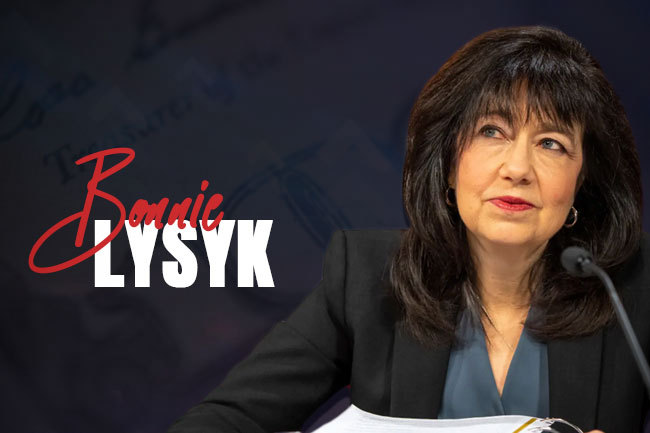This week, Ontario’s Auditor General Bonnie Lysyk published her annual report to the legislature. In it, she gives recommendations to the Ontario Lottery and Gaming Corporation on doubling down efforts to tackle money laundering attempts at the province’s casinos. She reports that the number of suspicious transactions is relatively low but it varies among different casino properties.

In order to gather information, Ms. Lysyk hired and sent mystery shoppers for a sting operation at four Ontario casinos in Greater Toronto Area, Niagara Falls, and Windsor. There they were tasked with testing each casino’s anti-money laundering protocols. In her words, her ploy was a way of demonstrating how easy would be to launder money in provincial gaming amenities.
Report’s Findings

On their mission, mystery shoppers tried out how easy would it be to launder money and they were able to obtain casino cheques with large amounts of cash without confirming the source of funds, said the report. The Auditor General elaborated that the mystery shoppers were not successful with their task in two of the provincial casinos, where security interfered.
Ms. Lysyk did not provide the names of the properties but said one of them correctly identified the shady activity and refused the patron’s request for cheques. It even issued trespass orders, which banned the client from all gaming sites operated by the company. However, other casinos were not able to properly tackle the suspicious play and requests for cheques.
The auditor reported that the shoppers were able to acquire casino cheques of over CA$3,000 with limited play and no proof of winnings from two of the four gaming establishments. The agents started with amounts of CA$5,000 to CA$11,000 in cash at the two casinos, player tables games and slots for a brief period and proceeded to cash out with cheques.
After the release of the report, the Auditor General says that in order to deal with potential money laundering attempts, the OLG and the Alcohol and Gaming Commission of Ontario should implement measures for all casino operators. These requirements would consist of asking patrons for proof of source of funds for buy-in for cash transactions of CA$10,000 or more.
In response to the recommendations, the OLG said that it will put more effort to ensure compliance with its anti-money laundering framework. The Crown also agreed that there is a need to continuously address money-washing risks at its brick-and-mortar amenities, and promises to work with casino operators to review additional cheque issuance rules.
Issue in Other Provinces Too
The problem of money laundering in casinos is no stranger to other Canadian provinces. For instance, British Columbia was involved in a major money-washing controversy, as Asian organized crime groups used provincial casinos to launder their crime-originated money. With suspected drug-cash deals reaching the whooping amount of CA$200 million on an annual basis.
Recently, experts also warned that Quebec casinos could still be targets of criminals’ money laundering attempts. This was in connection to a recent report which found that over the last few years, the provincial organization Loto-Québec has reported over CA$420 million in large cash transactions at its gaming properties to the country’s anti-money laundering body.
Source: Benzie, Robert “Ontario casinos should improve safeguards against money laundering: auditor general” Toronto Star, November 30, 2022



















